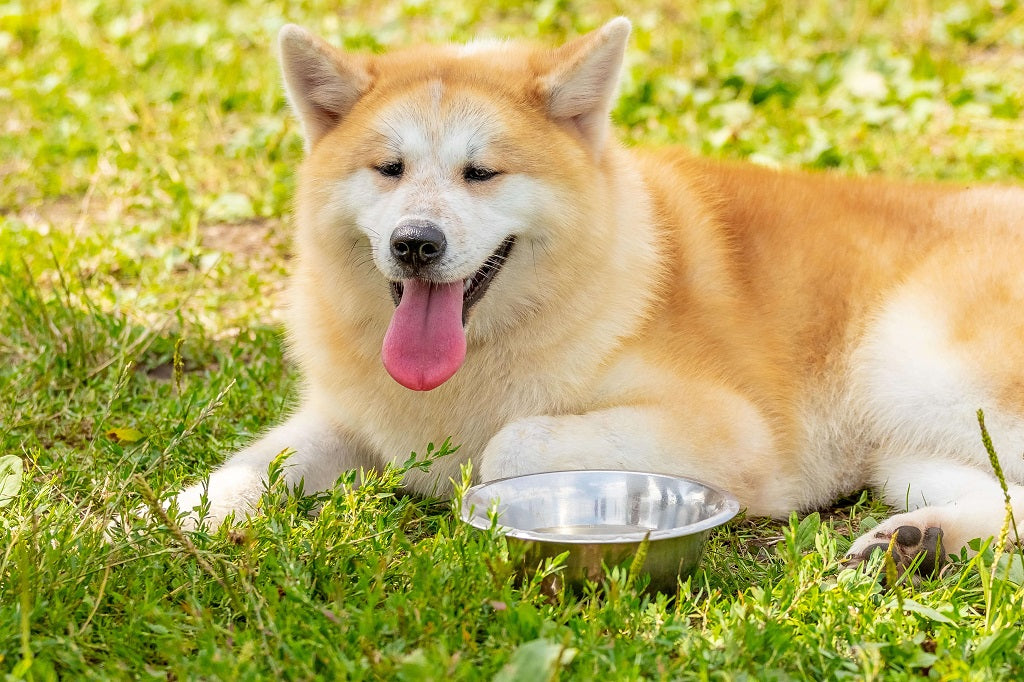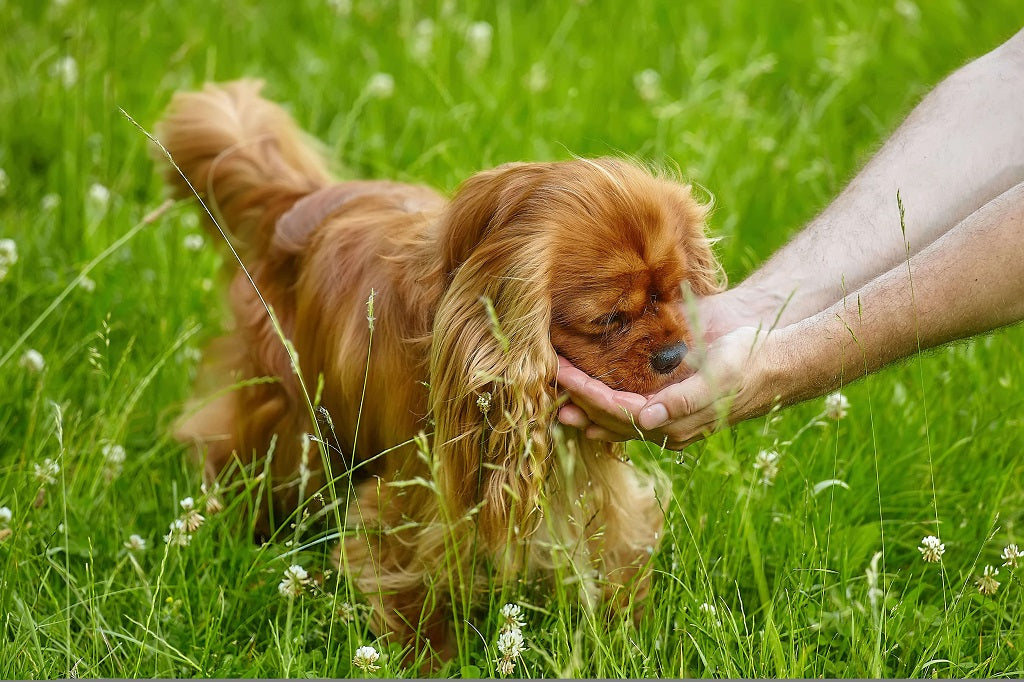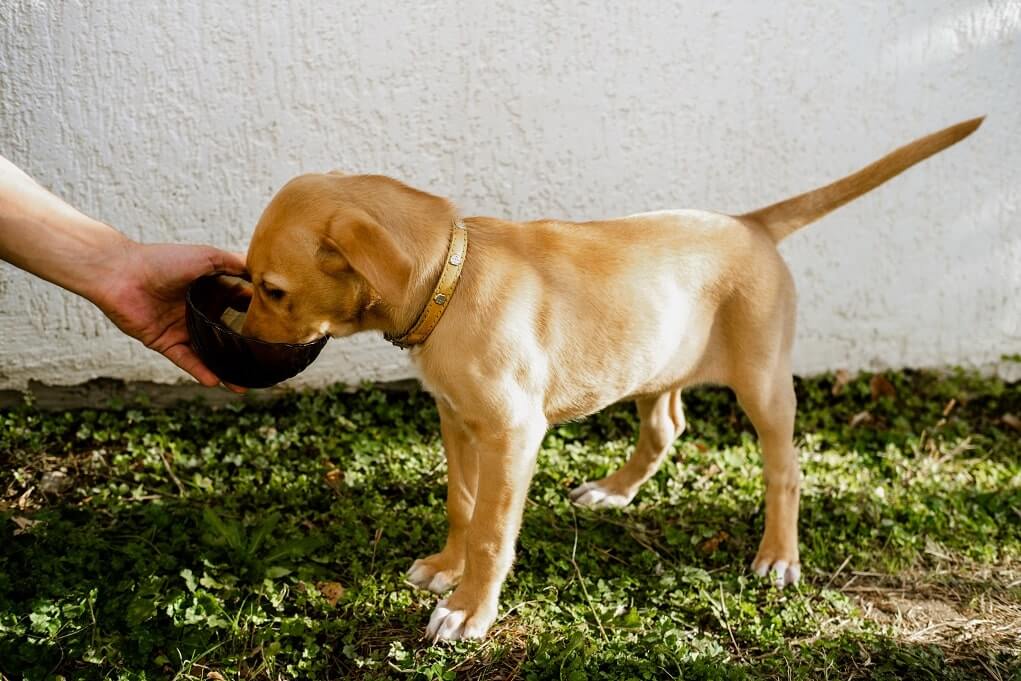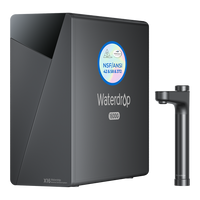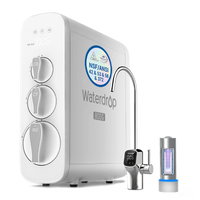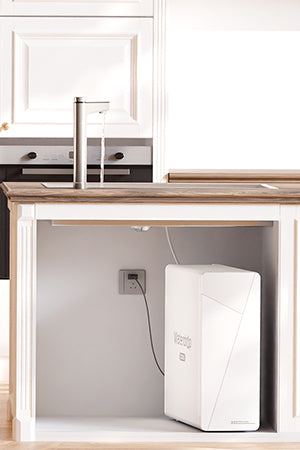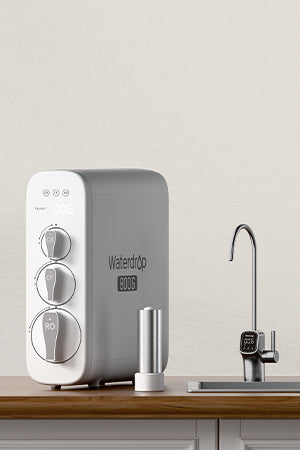For humans, water is the source of life, and that applies to pets as well. We can easily know how much water we should drink every day, but many pet owners don’t know how much water their pet dogs need to drink.
The fact is, dogs can skip meals for three days, but they cannot live for one day without drinking water. The lack of water will cause digestion stagnation, loss of appetite, and decreased disease resistance in their bodies. In today’s blog, we will address some of the questions that you should know as a pet owner.
Why Water Matters for Dogs
Water is an essential nutrient for pets, and it is also the biggest component of their body systems. Pets can survive if they lose all fat or half of their protein, but they are in danger of death if they lose 10% of water.
Percentage of water in pets
The amount of water in the pet's body is about 50% to 70%. The distribution of water in animal organs and tissues varies. Muscle water content is about 72% to 78%, blood water content is about 80%, and fat tissue water content is less than 10%.
Water in the body is divided by the cell membrane into intracellular fluid, which accounts for about two-thirds of the total water in the body, and extracellular fluid, which accounts for about one-third.
The role of water
Water as the main component
Most of the water in the animal's body is combined with protein to form a colloid, which makes the tissue cells have a certain shape, hardness, and elasticity.
Water as an ideal solvent
Water is an ideal solvent to break down the nutrients and other essentials in animal bodies. It is a necessary solvent for the metabolism of an animal’s body. The digestion, absorption, operation, and discharge of various nutrients in the body must be dissolved in water.
Water as the medium
Due to the action of enzymes in the animal body, water participates in many chemical reactions such as hydrolysis, redox, synthesis of organic matter, and cell respiration. It functions as a critical medium in keeping body systems functioning well.
Body temperature regulator
Water can store heat energy, quickly conduct heat energy, and evaporate heat energy, which is beneficial for animals to regulate body temperature. The evaporation of water to dissipate heat is particularly important for animals with sweat glands.
Lubrication
The water exists as a tissue fluid in the joint capsule of the animal body, in the body cavity, and between the various organs. It can reduce the friction between the joints and the organs and play the role of lubricant.
How Much Water Should A Dog Drink per Day?
Now you’ve learned the importance of drinking water for dogs, how much water should we feed dogs every day?
There’s not a certain number that can be applied to all dogs. Different breeds, different ages, weights, and the proportion of dry pet food consumed will lead to the difference in the amount of water a dog needs per day.
For example, puppies need to drink about 1.7-2.5oz of water per pound of body weight per day; adult dogs need to drink about 1-2oz of water per pound of body weight per day. If your dog weighs 22lb, then the recommended amount would be around 20-22oz every day.
Generally speaking, pets' water requirements are proportional to the pet food they consume. Every pound of pet dry food requires 34-85oz of drinking water, and the ratio of water required by adult dogs and cats to dry pet food is about 3:1.
If you are one of the dog owners who don't have a concept of the water volume, simply remember that two ounces of water are about 1/4 cup in volume. Or even more conveniently, using containers with scales, you then can monitor how much water the dog drinks every day.
Why Is My Dog Drinking So Much Water?
Excessive intake of protein or carbohydrates by pets will increase the water intake of dogs and cats. For example, after eating high-salt foods, dogs' free drinking water will increase by 4 times. Pets' water requirements are also affected by breeds, physiological conditions, food types, and environmental factors.
Yet, pet diseases like diabetes, renal failure, adrenal hyperfunction, etc can also lead to excessive water intake. If you notice the situation has existed for a while, you should take your dog and seek medical examination immediately.
For an unneutered female dog who starts to drink a lot of water, even in summer, you need to be aware of the risk of pyometra, which is usually accompanied by loss of appetite, increased urine output, and discharge from the vulva.
How to Trick Your Dog into Drinking Water?
If your dog fails to meet the daily water intake amount, below are some ways to make dogs fall in love with drinking water.
Behavior change
As long as your dog drinks water, encourage them and give them certain material rewards
Strategic change
Put the water bowl near its food, near the bed, and where he often plays. Add more water spots and place the water in locations where dogs like to stay or obvious to be noticed.
Liquid change
Use fresh flow water or filtered water to feed your dog.
It’s very common that dogs don’t finish all the water in the containers, and it’s important to change the water regularly, not when it is gone. Because, unlike fresh flow water, water in a container is very easy to breed bacteria, and the dog is also prone to bugs after drinking the contaminated water.
Why you should start filtering your dog's water
If it’s possible, feed your dog with filtered water. Don’t think that it’s okay for dogs to drink tap water directly. As the city water piping system ages, tap water has high risks of containing impurities and bacteria. Therefore, it is not recommended for dogs to drink tap water directly.
If you have a water filter system installed at home, simply take fresh flow water from the filtered water faucet. The Waterdrop D6 reverse osmosis system is very ideal for pet owners. The system achieves excellent filtration performance by removing bacteria, viruses, and other commonly found water contaminants. By improving the water taste, pets are more likely to drink fresh and tasty filtered water compared to unfiltered tap water.
Another highlight of the system is the smart screen on the faucet, in which users can monitor the water quality and filter status in real-time. You can be assured the water that your beloved pet drinks is safe and secured.
Check more about
RO system filter.
Taste change
If none of the tactics above is useful, instead of feeding dogs with water directly, replace water with some chicken soup, beef soup, or any meat bone soup. Slowly increase the proportion of water in it, just like the process of puppies changing food.
